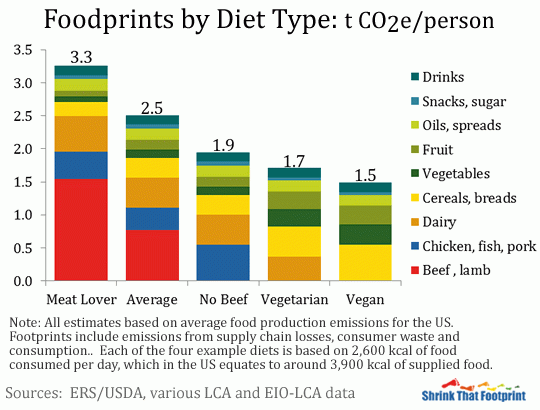7 Best Carbon Credit Cards for 2025: Reduce Your Carbon Footprint and Save Money
As the world inches closer to crossing the 1.5 degrees Celsius temperature limit, it’s becoming clear that our consumption patterns play a pivotal role in influencing the direction of climate change.
That’s because our individual actions contribute to our carbon footprint. What we eat, how we travel, and what we choose to buy daily all impact the environment and the planet’s available resources.
We cannot rely on governments alone to take action – being conscious of where we spend our money can help us choose environmentally-friendly options that protect the planet from further damage.
A recent innovation, sometimes called a ‘carbon credit card’, is a tool that helps mitigate the carbon footprint of an individual’s purchases, while still offering the many of the perks and services of regular credit cards.
That’s because our individual actions contribute to our carbon footprint. What we eat, how we travel, and what we choose to buy daily all impact the environment and the planet’s available resources.
We cannot rely on governments alone to take action – being conscious of where we spend our money can help us choose environmentally-friendly options that protect the planet from further damage.
A recent innovation, sometimes called a ‘carbon credit card’, is a tool that helps mitigate the carbon footprint of an individual’s purchases, while still offering the many of the perks and services of regular credit cards.
What is a carbon credit card?
A carbon credit card is a credit card that helps the user mitigate their carbon footprint, like how Aspiration plants a tree for each purchase made using the Zero credit card. Other carbon credit cards might help mitigate a person’s footprint in other ways, such as limiting purchases based on levels of CO2 emissions.Some of these credit cards are go a step further by being made from recycled ocean plastics or bio-sourced materials that degrade easily, such as corn and polylactic acid. They may also be printed using special ink made from recycled air pollution particles such as soot from chimneys and car exhaust pipes.
How does a carbon credit card work?
Carbon credit cards work just like regular credit cards. They provide credit lines and are subject to annual percentage rates (APRs). The only difference is that carbon credit cards offer special eco-friendly perks that encourage customers to spend responsibly.Unlike regular credit cards that simply show you the purchases you’ve made each month, carbon credit cards provide you with a report of the carbon emissions associated with your spending. The card calculates the carbon impact of each transaction using a cloud-based climate impact index that shows the amount of CO2 emitted by your spending in proportion to the national carbon limit.
Best Carbon Credit Cards in 2023
Trying to find the best carbon credit card can be overwhelming. There are dozens of different cards on the market, all with different benefits and drawbacks.To help you make a decision, we have sifted the internet and short-listed the top 6 carbon credit cards for you to consider.
1. Climate Credit Card: Best Overall

- Climate Credit Card Review: Comes with your own personal footprint calculator and reasonable rates, and helps the environment with every purchase.
- Climate Credit Card Limit: No limit for qualified users.
- Climate Credit Card Benefits: Detailed feedback on purchase impact, funds green projects.
- Climate Credit Card Approval: Fast
- Climate Credit Card Application: Easy
- Climate Credit Card Credit Score Needed: Good credit score required for approval.
- Climate Credit Card Annual Fee: None
- Rating: 5 out of 5 (8billiontrees.com)
The initiative educates consumers on the impact of their carbon emissions and contributes to climate projects worldwide to create real change. The card comes in two types. One is for businesses, and the other one is for private clients.
2. Mastercard Carbon Credit Card: Best No Fee Card

- Mastercard Carbon Credit Card Reviews: No fees andreward points the pile up. This card gets high marks for eco-friendliness and impact.
- Mastercard Carbon Credit Card Limit: Yes, limits are issued by the bank
- Mastercard Carbon Credit Card Benefits: Rewards and cash back bonuses
- Mastercard Carbon Credit Card Approval: Fast
- Mastercard Carbon Credit Card Application: Easy
- Mastercard Carbon Credit Card Credit Score Needed: Good or excllent credit score required
- Mastercard Carbon Credit Card Annual Fee: No
- Rating: 5 out of 5 (8billiontrees.com)
There are no annual fees associated with this card.
3. Aspiration Credit Card - Aspiration Zero Credit Card: Best Carbon Neutral Card

- Aspiration Credit Card Reviews: The annual fees are a drawback, but overall the card is excellent. Ranks high for eco-consciousness.
- Aspiration Credit Card Limit: Yes, amount limits apply.
- Aspiration Credit Card Benefits: Cash back and a welcome bonus.
- Aspiration Credit Card Approval: Fast
- Aspiration Credit Card Application: Easy
- Aspiration Credit Card Credit Score Needed: Good to excellent (670+) required for approval.
- Aspiration Credit Card Annual Fee: Yes, annual fees apply.
- Rating: 5 out of 5 (8billiontrees.com)
But what sets Aspiration apart from other credit card companies is its commitment to sustainability. Aspiration is a carbon-neutral company, which means it offsets its carbon emissions by investing in clean energy projects.
It also offers a carbon-neutral credit card, the Aspiration Redwood Mastercard. This card allows cardholders to offset their carbon emissions from their everyday spending.
Then there is the Aspiration zero credit card that gives you a cashback of 1% on all purchases if you achieve zero carbon footprint with your purchases. They have an app that tracks the carbon offset on the things you purchase. The company also plants trees on your behalf when you make purchases using your card.
4. Mastercard Doconomy: Best Cash Back

- Mastercard Doconomy Reviews: Users rank this card great for the features and sustainability.
- Mastercard Doconomy Limit: Yes, determined by the bank.
- Mastercard Doconomy Benefits: Cashback and rewards.
- Mastercard Doconomy Approval: Fast
- Mastercard Doconomy Application: Easy
- Mastercard Doconomy Credit Score Needed: Excellent score required for approval.
- Mastercard Doconomy Annual Fee: No annual fee.
- Rating: 5 out of 5 (8billiontrees.com)
This can help you save money on interest charges if you plan to carry a balance on your card. Second, the Mastercard Doconomy card rewards you with 1% cash back on all purchases. This means you can earn cash back on every purchase you make with your card.
Third, the Mastercard Doconomy card has no annual fee.
This means you can keep more of your hard-earned money in your pocket each year. Finally, the Mastercard Doconomy card comes with many built-in protections, including fraud protection and extended warranty protection. These protections can help you feel confident and secure when using your card.
Overall, the Mastercard Doconomy is a great choice for those looking for a carbon credit card.
5. Do Black Credit Card: Best Sign Up Bonus

- Do Black Credit Card Reviews: Users rank this card goodm because of foreign transaction fees and higher interest rates, but love the metal carbon credit card.
- Do Black Credit Card Limit: Yes, the card has limits set.
- Do Black Credit Card Benefits: Cashback and rewards.
- Do Black Credit Card Approval: Fast
- Do Black Credit Card Application: Easy
- Do Black Credit Card Credit Score Needed: High credit score required for approval.
- Do Black Credit Card Annual Fee: No annual fee.
- Rating: 5 out of 5 (8billiontrees.com)
There is no annual fee for this card. It also has a 0% APR for the first 15 months on purchases and balance transfers (R). After that, the APR will be 14.49% – 24.49% variable.
This card also has a $200 sign-up bonus after you spend $500 on purchases in the first three months from account opening. The biggest downside of this card is that it has foreign transaction fees of 3%. So if you plan to use this card while traveling outside of the United States, you’ll want to keep that in mind.
6. American Express Green Card: Best Rewards

- American Express Green Card Reviews: American Express carbon credit card gets great marks for service and usability.
- American Express Green Card Limit: No limits.
- American Express Green Card Benefits: Reward Points
- American Express Green Card Approval: Fast
- American Express Green Card Application: Easy
- American Express Green Card Credit Score Needed: 690-850 (Good - Excellent) scores required for approval.
- American Express Green Card Annual Fee: Annual fee is $150.
- Rating: 4 out of 5 (8billiontrees.com)
Points can be redeemed for cash back, gift cards, and travel.The card also has a 0% APR for 15 months on balance transfers and purchases.
7. FutureCard Visa® Card: Best Green Charge Card

- No Credit Check
- Pros & Cons
- No annual fee
- No foreign transaction fees
- No deposit required
- Application requires no credit pull
- Cash-back reward is immediate
- Not a credit card
- Does not report activity to credit bureaus
- Currently only offers digital cards
- Earn 6% cashback on select partner brands, 5% cashback on the first $25,000 of purchases spent on public transport, electric charging, bikes and scooters, secondhand clothes and furniture and plant-based meat, dairy and eggs and 1% cashback on all other purchases
- “FutureScore” provided through the card’s mobile app helps cardholders track, measure and reduce their carbon footprint through their spending habits
- No annual fee
- No credit pull when you apply for the card
Bottom Line
To find an eco-friendly credit card from an issuer that won’t invest in fossil-fuels, seek out local options from nearby credit unions and community-focused banks. Among major issuers, American Express has announced the most sustainability-oriented measures, but its products don’t feature options for offsetting carbon footprint like the Aspiration Card does or provide rewards for more sustainable shopping purchases like the FutureCard secured charge card does.Read More: ESG Series (Environmental, Social and Governance)


.png)








Comments